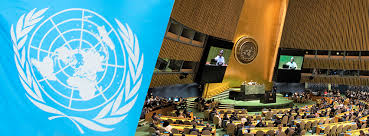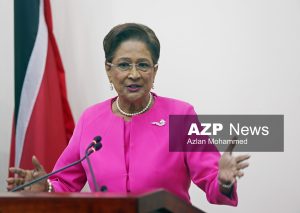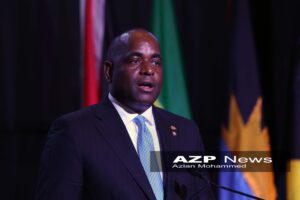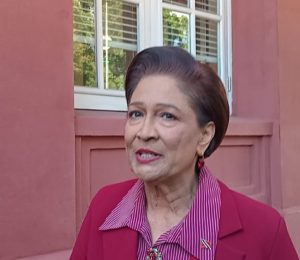By Sue-Ann Wayow
THERE is an urgent need to incorporate legislature to assist in the decrease in discrimination against persons with disabilities and a project is in place for that purpose.
A two-year project began in January 2022 at a cost of $US300,000.
A joint press release by the United Nations Trinidad and Tobago, Pan-American Health Organisation and the World Health Organisation (PAHO/WHO) and the UN Population Fund (UNFPA) stated that the project is being funded by the UN Partnership on the Rights of Persons with Disabilities Multi-Partner Trust Fund (UNPRPD MPTF).
It will be implemented by the country offices of PAHO and WHO and the UNFPA, with oversight from the UN Resident Coordinator’s Office.
The programme has so far featured extensive consultations with persons with disabilities, organisations that represent them, government stakeholders, academia and UN agencies in T&T.
According to the 2011 Population and Housing Census in T&T, there are approximately 52,000 people living with a disability – at least 4% of the total population.
The release stated, “During those consultations, persons with disabilities said they continue to face inequality, discrimination, challenges accessing public services and poor socio-economic outcomes.
“This feedback became the focus of an evaluation report which signalled an urgent need to: consistently incorporate disability considerations into the legislative process; strengthen the availability of disability support services at the community level and remove barriers that prevent persons with disabilities from enjoying productive and effective participation in the workforce and in society.”
The recommendations will be implemented in the phase two project, titled, “#NoOneLeftBehind: Empowering Persons with Disabilities to Promote Inclusion, Awareness and Access in Trinidad and Tobago.”
The release stated that by the time the project ends in December 2023, there will be a national plan to improve community-level access to disability support services, including rehabilitation services and assistive technology.
PAHO/WHO representative to Trinidad and Tobago, Dr Erica Wheeler said, PAHO/WHO was committed to supporting Trinidad and Tobago in promoting the active involvement and participation of persons with disabilities in the planning of strategies and policies that affect their lives.
UNFPA Director of the Sub-Regional Office for the Caribbean, Alison Drayton, added, “In 2021, UNFPA launched a brand new disability inclusion strategy geared at accelerating the kind of organisational change that welcomes diversity and ensures equality. This initiative supports persons with disabilities to participate in reviewing three pieces of national legislation that will, no doubt, affect their lives. This is another clear demonstration of our commitment to the key Agenda 2030 principles, which has ‘leaving no one behind’ as a key component.”
During the two-year project, a legislation review panel will be created from among the community of persons with disabilities to review and generate draft amendments for the Equal Opportunities Act, the Education Act, the Mental Health Act and/or the Immigration Act, to ensure there are stronger provisions for equality and non-discrimination within the workplace, the school system and the public health system. These proposed amendments will better align these key pieces of legislation with the UN Convention on the Rights of Persons with Disabilities and will be submitted to the government for consideration, the release stated.
To prepare them for this advocacy, the UN in T&T will train 100 participants from the community of persons with disabilities and other key partners in policy review and advocacy.
The project will also provide training to multiple government stakeholders so that policy advisors, legal staff and support staff are better equipped to create and review legislation and make it more disability-inclusive.
![]()











